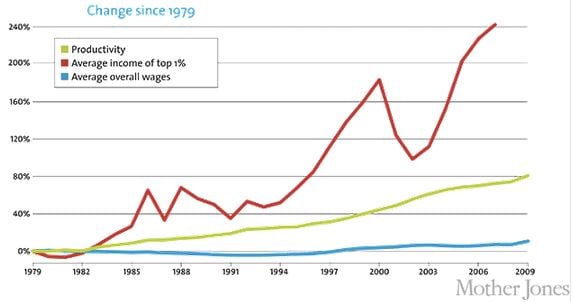The New York Times Magazine featured a story on Friday asking, Is It Immoral to Watch the Super Bowl? I’m not so sure.
Ta-Nehisi Coates wrote after the championship games:
I sat down and watched two football games yesterday for the first time in a couple of years. It was sort of like seeing your ex-wife for coffee. For 30 years of my life, Sunday afternoons in the Fall were the best time of the year. But given the NFL’s tangled, and frankly indefensible, sense of morality, I left. Tom Brady and Peyton are like old friends, the last stars of my generation entering the twilight years of their career. I watched the Broncos win, and then I turned to see the real treat—Richard Sherman and the Seattle Seahawks.
This describes me pretty much perfectly. In the last decade I can count the NFL games I’ve watched on one hand, all of them before last weekend were Super Bowls; and all of them more out of a sense of enjoying community with my family or friends than out of any desire to see the game itself.
Coates points to injuries, such as the knee injury to NaVorro Bowman in the Seahawks/49ers game for the the reason he left.
For me the break was due to money. While the average NFL player earned about $6,000 in the 1960s, or 150% that of the average American worker, the average NFL wage is now $2,000,000, or 40 times (4000%) that of the Average American household.*

With the seemingly endless strikes and lockouts in professional sports in the late ’90s, I just gave up. All of these people are making amazing amounts of money, and here they are bickering so much that they won’t even play. One could say these were some great victories for unions and collective bargaining, but with such huge sums of money per person being argued about, it seems woefully unfair to compare this to union work done at places like Wal-mart and on college/university campuses for the ever growing adjunct faculty. Unions aren’t there to protect the top 10% from the top 3%.
Disgusted with it all, I just quit watching.
Got 5 minutes? Watch this. Even if you’ve already seen it:
So, is it immoral to watch the Super Bowl?
I’m torn on that question in the same way I was when I found out my first meditation teacher owned his own laptop; because, you know, China… and corporations… and atrocities and inequality and all of that.
In watching the Super Bowl, one becomes complicit in supporting the great theater of cash-madness and concussions, broken limbs and broken dreams, which is the NFL today. I think there might have been a time when I could categorically say that yes, it’s immoral to support the game.
But I’ve softened. Does owning a laptop or smart phone made in China make you a complicit supporter of horrible crimes over there and similar effects of inequality in the US. Yes. Does that make it immoral?
The answer in Buddhism on such questions often leans toward intention. Why are you watching the game? Is it to revel in the brutality and the potential for injury with each hard hit? Or are you spending time with friends and family or simply using the time to observe the activities of about 100 million fellow Americans through “participant observation.” Are you using your phone or laptop for good instead of self-gratification? If we cannot escape being complicit, at least we can bring these awareness generating questions to our life in those moments.
It’s easy to get lost in the emotion of the crowd, literally in the case of the football game and more figuratively when it comes to our constantly-used gadgets. The self or ego expands out: suddenly it’s “WE” are winning, not “the team out there” – and the whole fanboy/girl phenomenon, which I won’t pretend to understand fully, follows similar tendencies.
If we can abandon or renounce the spectator sports and the shiny gadgets tomorrow, not to mention the other tons of conceptual and physical baggage most of us carry, all the better for us and for the world. But if we cannot, and I imagine that’s pretty much all of us, then at least we can strive to develop awareness during the game – seeing these people as people, taking notice of those on the sidelines, wondering about the lives they each lead off the field. Then perhaps, we can more easily see why demanding better safety is important: these are people like you and me, not some distant ‘other-ized’ things (and do pay attention to language used to describe them).
“Good motivation” can also be used as a cop-out; so it helps to have kalyāṇa-mittas, or wise friends, who can check your behavior now and then. In the same way, “do-gooding” can become and selfish, as one tries to make an ever larger spectacle of how non-conformist one is or how well one can put down those ‘others’ who have bought in to this or that part of our destructive culture. Checks and balances, checks and balances.
Growing up in Montana, I didn’t have a team to root for, so I picked the Raiders solely because they were fierce rivals of my dad’s team, the Broncos (this was the 80s/early 90s). I had family in Seattle so I got to root against the Seahawks too and even went to one game when the Raiders played Seattle in the mid/late 90s. I enjoyed learning about Richard Sherman after the last game, a very smart, talented, hard-working and charitable young man who plays for Seattle – although I didn’t so much enjoy seeing some of the blatant racism that helped launch him into the spotlight.
So I’ll be watching the game. And I’ll root for Sherman, and hope he stays safe out there.
And I’ll do the same for his teammates and the other team too.
And I’ll enjoy the time with my friends, thinking about family half the world away, and sharing this strange little problematic-but-still-beautiful-in-its-own-way aspect of American culture with whoever I can convince to join me from 11pm until around 3am GMT on a Sunday night.
I’d like to hear your thoughts on the game, dear Buddhists of America (and beyond).
Is one team more Buddhist than the other? Does your Buddhist practice already play a part in how and why you watch the NFL – or don’t. You can comment below, as always, or send me a short Op-Ed (350-800 words preferably, plus a line or two about yourself, photos are good too!) and I’ll post it here, pending the usual editorial consideration – Is it relevant? Is it helpful? Etc. at [email protected].
Facts and figures:
- Forbes asked the same question last summer, as did pbs in the fall.
- *based on the Mother Jones number of $50,000 (that’s household and often consists of 2 incomes -or three or four- so I’m switching up numbers on you a bit but you get the point).
- Personal income in the US, wiki.
- NFL wage history, ehow.
- This site gives a 1.1 million average salary in the NFL in 2011, so we’re only talking 2200%, not 4000%. It also notes that: “The NFL Players Association indicates that the average football player’s career is only three seasons long. Most players do not have guaranteed contracts, and may find themselves suddenly out of work because they were cut or because of injury. Around 400 NFL players end their NFL careers each year. While the NFL’s big-name stars may earn millions each year, average NFL players do not. In 2010, the minimum wage was $325,000 a season for rookies, going up to $395,000 in a player’s second year and $470,000 in their third year.”
So no doubt many players do not become multi-millionaires or even millionaires, but even one year will pay more than most Americans make in a decade. - And here you can find a $44,000 US “national wage index.”
- An example of the kinds of injuries being scrutinized is here from a college game (not pretty):
A follow-up on Anthony Conner’s recovery can be found here.












